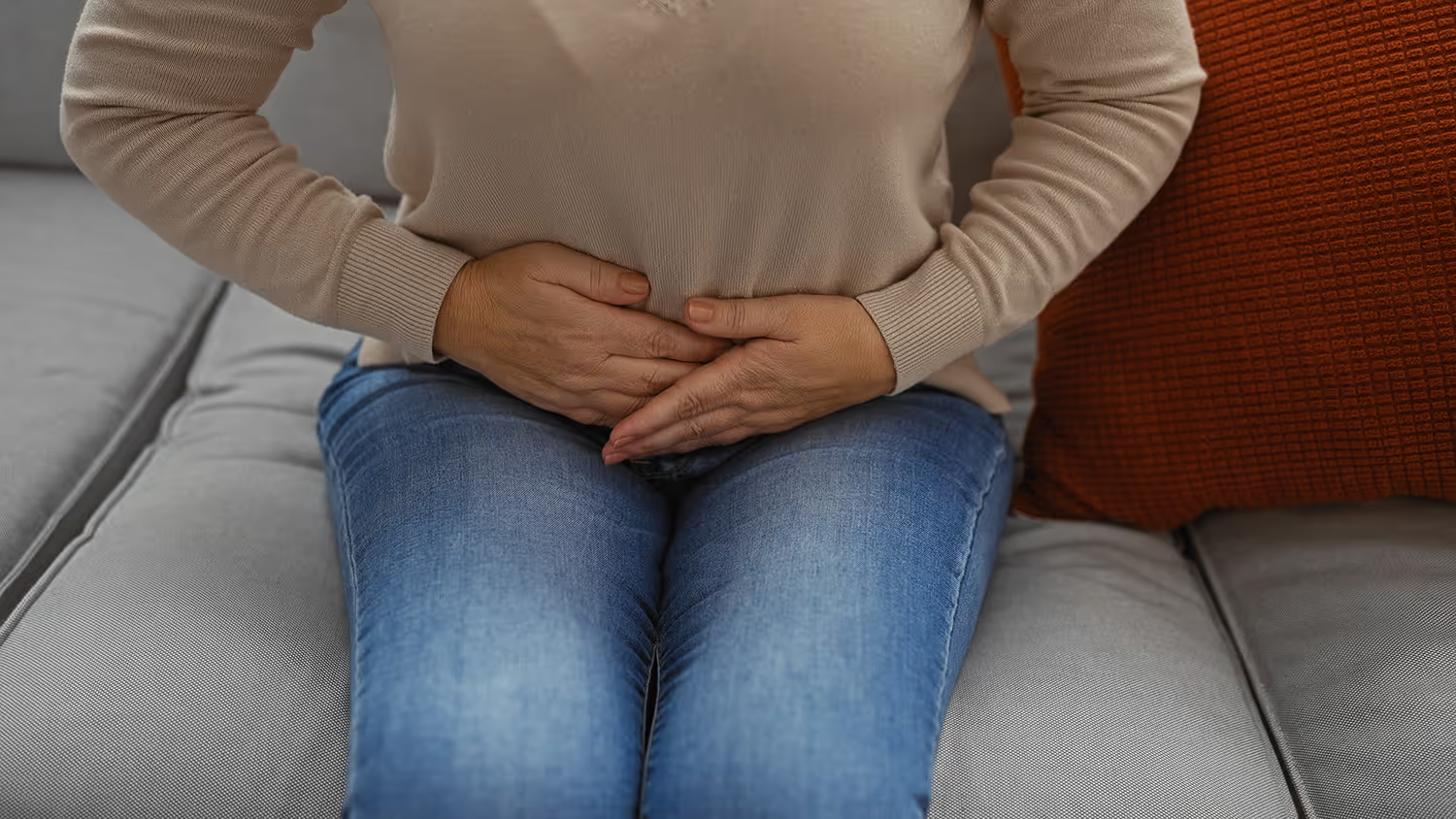Is bloating on HRT normal?
All about bloating and hormone replacement therapy (HRT)
It’s common to experience bloating – an uncomfortable, full feeling in your belly – and twice as many women as men are affected by it. In one worldwide study, 23% of women reported experiencing bloating [1].
Bloating can make your belly feel bigger than usual and it can be painful. Your tummy may rumble, make noises and you may have trapped gas or need to pass wind more frequently.
What can cause bloating?
Your diet plays a significant role in the health of your gut microbiome, and you may find particular foods more difficult to digest – this can vary from person to person but also, you may find your tolerance for certain foods varies too.
Can hormones cause bloating?
Many women experience bloating before their periods – it can be a symptom of premenstrual syndrome (PMS). In fact, as many as 73% of women report premenstrual gastrointestinal (GI) symptoms – abdominal pain, diarrhoea, bloating, constipation, and nausea are among the most common [2].
Fluctuations in oestradiol and progesterone in the luteal phase of your menstrual cycle (before your period) can cause PMS symptoms. Bloating can also be a symptom of progesterone intolerance (as are anxiety, low mood, greasy skin, cramping, breast tenderness and headaches).
If you experience bloating when you have PMS, you are more likely to experience this symptom during perimenopause and menopause, which is a time of hormonal fluctuation.
If you would like advice or treatment to help with symptoms of PMS or bloating on HRT, you can book a consultation below.
What impact does HRT have on bloating?
Balancing your hormones with HRT can help often improve bowel symptoms if the symptoms are caused by hormone changes, as it works to replace your missing hormones. However, if your HRT regimen includes progesterone or a synthetic progestogen, you may experience a bloating feeling.
Many women find that their bloating HRT-related symptoms usually settle down and generally side effects of HRT improve within the first three months.
Should I see a doctor about bloating on HRT?
Although bloating can be a side effect of HRT, you should see your Newson Clinic healthcare professional if your bloating is accompanied by unintentional weight loss, anaemia, a change in bowel habit, loss of appetite, belly pain or an increasing need to pee. These symptoms can be a sign of ovarian cancer or other conditions, so it is important to see a doctor to rule these out and get a diagnosis.

















